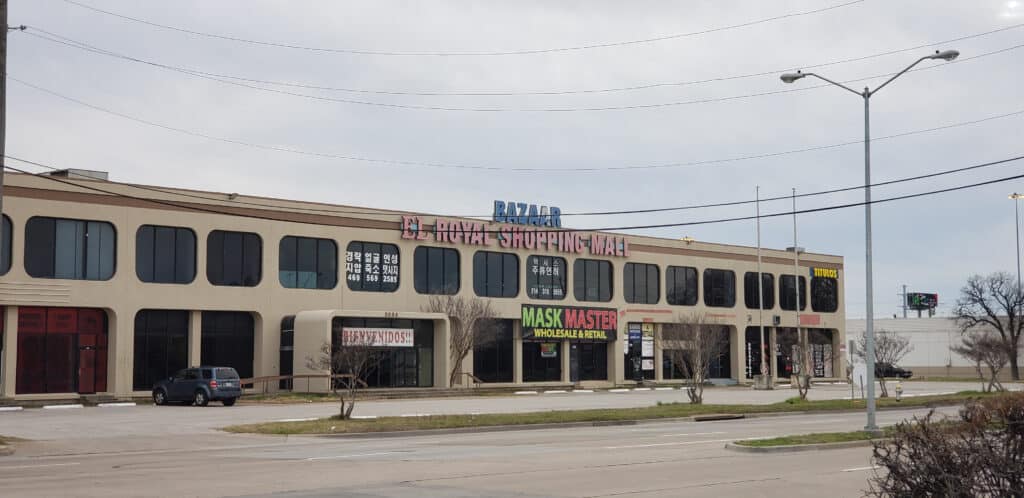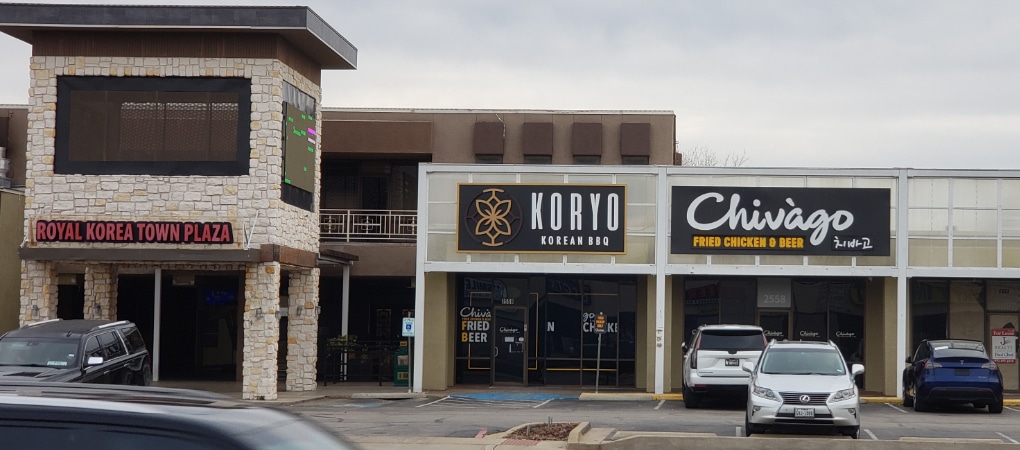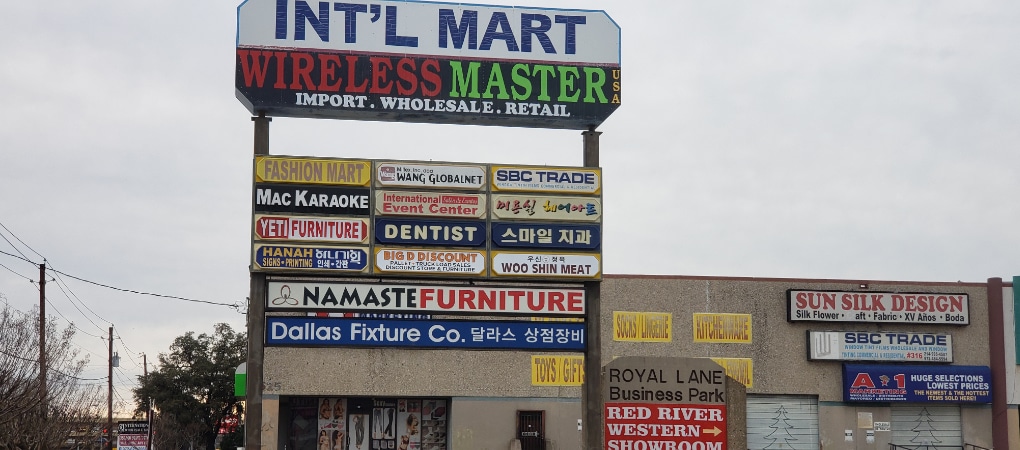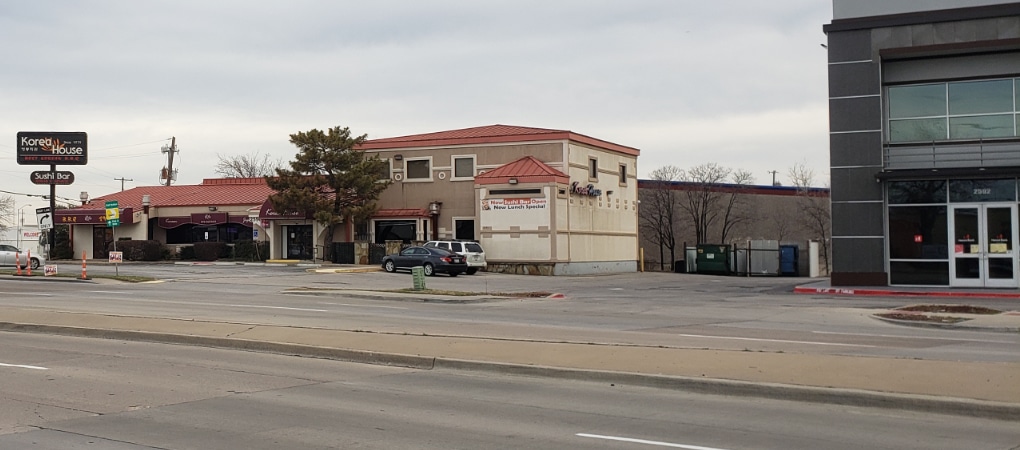
Estimated reading time: 10 minutes
The history of Koreantown in Dallas dates back to the 1980s, when the Sam Moon Trading Company opened its doors at the corner of Royal Lane and Harry Hines Boulevard. Today, the area around these streets is a hub of Korean-owned businesses in northwest Dallas, serving as a melting pot of Korean culture and society in the state of Texas. However, the community has faced its fair share of challenges in recent years, from a decline in business growth to the pandemic and even hate crimes.
Despite these challenges, the Greater Dallas Korean American Chamber of Commerce and other community leaders have pushed for the official recognition of Koreatown in northwest Dallas, with the hope that this designation will bring investment, create a sense of community and belonging, and acknowledge the historical significance of the Korean American community in Dallas.
The proposed area for designation covers a 1.6-mile stretch on Royal Lane from Harry Hines Boulevard to Luna Road, and would provide the Korean American community with more visibility in the city. Efforts to designate Koreatown have been ongoing since the early-to-mid 2010s, but the push gained momentum after a hate crime shooting at a hair salon last year. The movement to designate a Koreatown district is expected to be completed in the first quarter of 2023.
History of Koreans in Dallas
The Sam Moon Trading Company, founded by David Moon in 1984, was the first Korean-owned business to open in Dallas. The company grew and invested in a 50,000-square-foot property several blocks down, and today, the flagship store is at a retail center that Moon’s company owns at the intersection of Interstate 35E and Interstate 635. The area around Harry Hines Boulevard and along Royal Lane saw more than 200 Korean-owned businesses open in the early 2000s.
The COVID-19 pandemic and a decline in business growth has taken a toll on the Korean American community in Dallas. However, community leaders remain optimistic about the future of Koreatown in northwest Dallas.

Push for Recognition
State Representative Rafael Anchía authored a concurrent resolution in the Texas House to designate a 1.6-mile stretch on Royal Lane as “Koreatown Dallas.” This resolution, if passed, would provide the Korean American community in North Texas with more visibility and allow them to approach the Texas Department of Transportation for signs on the highway. The proposed designation of Koreatown is an opportunity to recognize the diversity of the city and experience Korean culture in Dallas. The hope is that an official designation will help reinvigorate the neighborhood and bring investment.
Obstacles in the Designation of Koreatown Dallas
While efforts to officially recognize Koreatown in northwest Dallas have been ongoing, progress has been slowed by obstacles such as the pandemic and bureaucratic hurdles. The co-founder of the Dallas Asian American Historical Society, Stephanie Drenka, emphasizes that the identity of Koreatown should not only focus on its commercial value but also acknowledge its historical significance and cultural contributions to the city.
Drenka further emphasizes that investing in the infrastructure and community surrounding Koreatown is crucial for its long-term growth and success. The designation of Koreatown should not merely be seen as a symbolic gesture, but rather a comprehensive plan for developing and sustaining a thriving community for Korean Americans in Dallas.
The pandemic has also presented challenges for the Korean American businesses in the area, which have faced a decline in business growth. These challenges underscore the importance of investing in Koreatown to revitalize the neighborhood and attract more business and investment.
Despite these challenges, the unveiling of bilingual street signs at the intersection of Royal Lane and Harry Hines Boulevard represents a significant step towards the official recognition of Koreatown in Dallas. The hope is that this momentum will continue, and that the city will embrace the diversity and cultural contributions of the Korean American community in Dallas, and work towards the sustained growth and prosperity of Koreatown.

Unveiling of Bilingual Street Signs in Recognition of Koreatown Dallas
In January 2023, the city of Dallas unveiled bilingual Korean and English street signs at the intersection of Royal Lane and Harry Hines Boulevard in northwest Dallas. The event marked a significant milestone for the Korean American community in Dallas, who have been pushing for the official recognition of Koreatown in the area.
The unveiling ceremony was attended by city council member Omar Narvaez, local officials, representatives from the consular office of the Republic of Korea in Dallas, community and business leaders, and dozens of people from the Korean American community. The event included traditional Korean drum performances by the Arirang Texas Group, adding to the celebratory atmosphere.
The new bilingual street signs are a “first step” towards wider recognition of the city’s Koreatown, as they provide increased visibility and acknowledgement of the historical significance of the Korean American community in the area. The Greater Dallas Korean American Chamber of Commerce has been working to secure an official Koreatown designation from the city of Dallas, and the unveiling of these street signs represents progress towards that goal.
Additionally, Narvaez announced that Dallas Area Rapid Transit will add signage at the Royal Lane Station to label the area Koreatown. State Representative Rafael Anchía, who attended the unveiling ceremony, stated that his office is preparing a resolution for the state to recognize Dallas’ Koreatown. Such a designation would be effective for ten years and would allow for signs on the state highway to designate the area as Koreatown.
The unveiling of the bilingual street signs is a significant moment for the Korean American community in Dallas, representing increased visibility and progress towards the official recognition of Koreatown in the area. It is hoped that this momentum will continue to build, allowing for further growth, investment, and cultural celebration in the years to come.

Recognition of Koreatown in Dallas
The recognition of Koreatown in Dallas is an opportunity to celebrate the diversity and culture of the city, as well as acknowledge the contributions of the Korean American community in Dallas. An official designation would bring visibility to the area, allowing for more investment and growth. The community is hopeful that the process of designating Koreatown will continue to progress and become a reality in the near future.
The Rise of Koreatown Carrollton and Its Connection to the Efforts in Dallas
Over the years, Koreatown in Carrollton has become an increasingly popular destination for Korean Americans in the Dallas area. Located in a safer part of town and featuring newer buildings and amenities, it has become a thriving hub of Korean-owned businesses and cultural activities.
One of the main draws of Koreatown Carrollton is the H-Mart grocery store, a staple of Korean American communities across the country. The store offers a range of Korean and other Asian products, from fresh produce and meats to specialty snacks and drinks. H-Mart has become a vital part of the community, attracting people from all over the Dallas area to shop and socialize in the area.
The success of Koreatown Carrollton highlights the potential for the redevelopment of Koreatown in Dallas. The increased safety, visibility, and investment in the Carrollton area has led to a thriving community and a sense of pride among Korean Americans in the area.
The efforts to revitalize and officially recognize Koreatown in Dallas are necessary to bring the same benefits to the Royal Lane and Harry Hines Boulevard area. By investing in the infrastructure and community surrounding the area, and promoting its cultural and historical significance, it can become a vibrant and thriving hub of Korean American culture and commerce, much like its counterpart in Carrollton.
The H-Mart store in Carrollton is an example of the kind of business that could thrive in a revitalized Koreatown in Dallas. It not only provides a valuable service to the community, but also serves as a symbol of the community’s success and vitality.
In conclusion, the rise of Koreatown Carrollton highlights the potential for the redevelopment and recognition of Koreatown in Dallas. By investing in the community, promoting its cultural heritage, and attracting businesses such as H-Mart, the area can become a thriving hub of Korean American culture and commerce, bringing increased safety, visibility, and investment to the area.
The Future of Koreatown in Dallas
The official recognition of Koreatown in northwest Dallas is a major milestone for the Korean American community in Texas. The history of Koreans in Dallas dates back to the 1980s, with the Sam Moon Trading Company being the first Korean-owned business to open in the city. Today, the area around Royal Lane and Harry Hines Boulevard has become a hub of Korean-owned businesses and a melting pot of Korean culture and society in Texas.
Despite the challenges faced by the community, such as the pandemic and bureaucratic hurdles, community leaders remain hopeful about the future of Koreatown in northwest Dallas. The recent unveiling of bilingual Korean and English street signs at the intersection of Royal Lane and Harry Hines Boulevard represents progress towards wider recognition of the city’s Koreatown. This event, attended by city council members, community leaders, and dozens of people from the Korean American community, was a moment of celebration and cultural significance.
The rise of Koreatown Carrollton and its connection to the efforts in Dallas highlights the potential for the redevelopment and recognition of Koreatown in Dallas. The success of Koreatown Carrollton, featuring a staple grocery store called H-Mart, has become an increasingly popular destination for Korean Americans in the Dallas area. The increased safety, visibility, and investment in the Carrollton area have led to a thriving community and a sense of pride among Korean Americans in the area.
The community leaders remain hopeful that the process of designating Koreatown in Dallas will continue to progress, bringing investment, cultural celebration, and sustained growth and prosperity to the area. An official designation would bring visibility to the area, allowing for more investment and growth, as well as acknowledging the contributions of the Korean American community in Dallas.
To realize the full potential of Koreatown in Dallas, it is essential to invest in the infrastructure and community surrounding the area, and to promote its cultural and historical significance. The designation of Koreatown should not merely be seen as a symbolic gesture, but rather as a comprehensive plan for developing and sustaining a thriving community for Korean Americans in Dallas.
In conclusion, the recognition of Koreatown in Dallas is an opportunity to celebrate the diversity and culture of the city and attract businesses such as H-Mart. The community leaders believe that investing in the community and infrastructure surrounding the area, as well as promoting its cultural heritage, can help it become a vibrant and thriving hub of Korean American culture and commerce, bringing increased safety, visibility, and investment to the area.
How 24 Hour Translation Services Can Help the Korean American Community
At 24 Hour Translation Services, we understand the importance of language and cultural connections in building thriving communities. Our translation and interpretation services can help bridge the communication gap between Korean Americans and the broader Dallas community, providing access to vital services and resources.
We offer a range of language services, including translation of legal documents, medical records, and business materials. Our team of expert translators are fluent in both Korean and English, ensuring that language barriers do not hinder the success and growth of the Korean American community in Dallas.
As efforts to revitalize and officially recognize Koreatown in Dallas continue, we are committed to supporting the community by providing accurate and culturally sensitive language services. By partnering with 24 Hour Translation Services, the Korean American community in Dallas can continue to grow, prosper, and celebrate their heritage and culture. Contact us today to learn more about our language services and how we can support the success of the Korean American community in Dallas.
